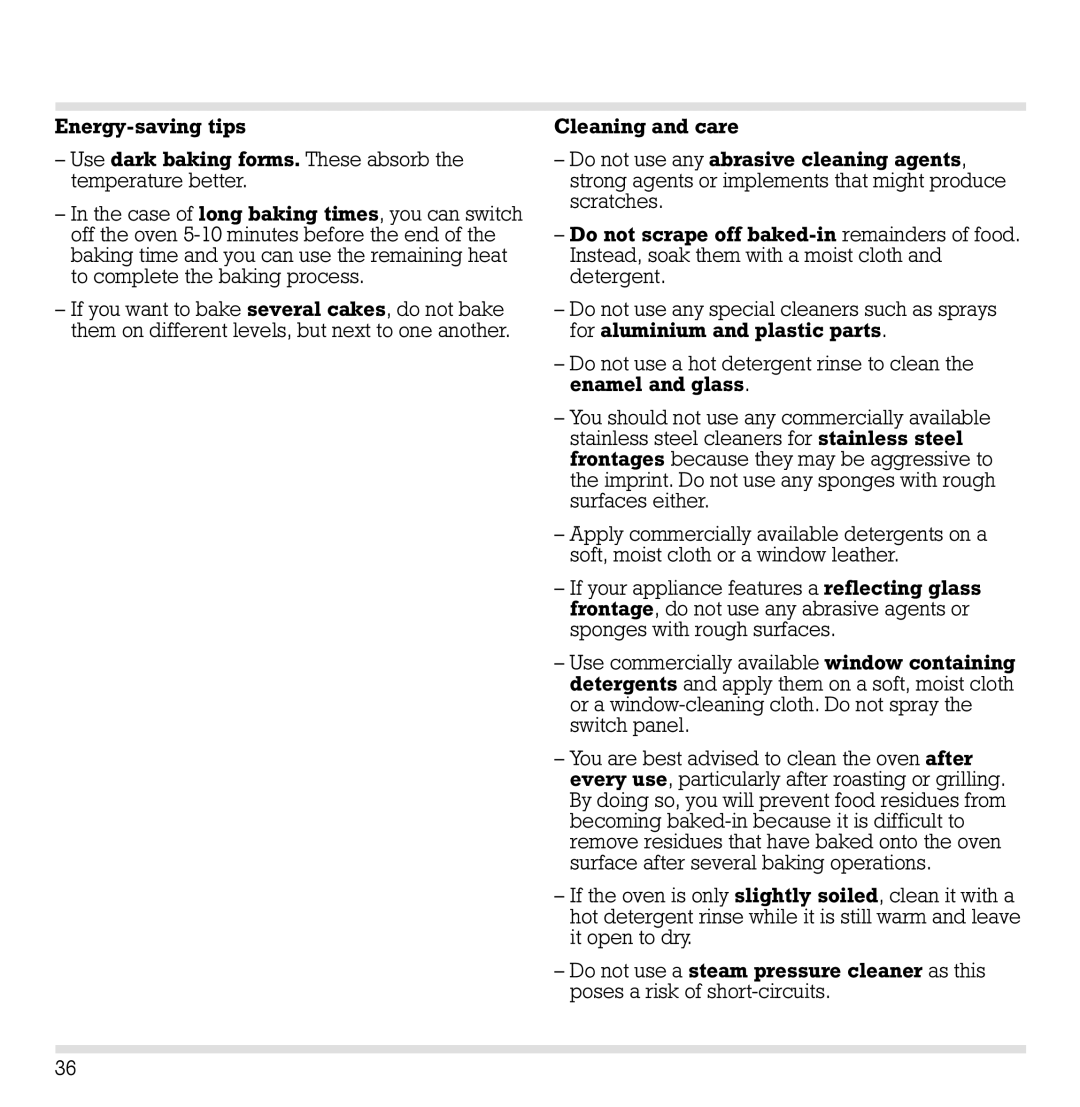
–Use dark baking forms. These absorb the temperature better.
–In the case of long baking times, you can switch off the oven
–If you want to bake several cakes, do not bake them on different levels, but next to one another.
Cleaning and care
–Do not use any abrasive cleaning agents, strong agents or implements that might produce scratches.
–Do not scrape off
–Do not use any special cleaners such as sprays for aluminium and plastic parts.
–Do not use a hot detergent rinse to clean the enamel and glass.
–You should not use any commercially available stainless steel cleaners for stainless steel frontages because they may be aggressive to the imprint. Do not use any sponges with rough surfaces either.
–Apply commercially available detergents on a soft, moist cloth or a window leather.
–If your appliance features a reflecting glass frontage, do not use any abrasive agents or sponges with rough surfaces.
–Use commercially available window containing detergents and apply them on a soft, moist cloth or a
–You are best advised to clean the oven after every use, particularly after roasting or grilling. By doing so, you will prevent food residues from becoming
–If the oven is only slightly soiled, clean it with a hot detergent rinse while it is still warm and leave it open to dry.
–Do not use a steam pressure cleaner as this poses a risk of
36
